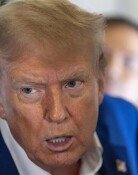War in Ukraine is likely to extend for long time
War in Ukraine is likely to extend for long time
Posted June. 20, 2022 07:44,
Updated June. 20, 2022 07:44
While the battle between Russia and Ukraine to seize Donbas in eastern Ukraine where a lot of pro-Russian groups are present extends for a long time, The Washington Post predicted on Saturday that the war in Ukraine might end in a ceasefire without termination and lead to a long-term division and very long conflict like the situation on the Korean Peninsula. As the Russian forces heavily attacked Severodonetsk, a major city in Donbas, on Friday and Saturday while Western countries continue to support Ukraine, it is difficult for one side to take control. “We should prepare for the situation where the war lasts for several years,” NATO Secretary General Jens Stoltenberg said in an interview with German media on Sunday.
The Korean War, which broke out in June 1950, settled down when the Military Demarcation Line was established near the 38th parallel based on the ceasefire agreement in July 1953. For about 70 years since then, the two Koreas have been in a ceasefire state with occasional military conflicts. The Washington Post diagnosed that if conflicts in some areas controlled by the Ukrainian forces continue with Donbas seized by Russia, the war is likely to settle into a situation like that on the Korean Peninsula.
The Guardian also predicted that Russian President Vladimir Putin is likely to claim its conquered territory in southeastern Ukraine, including Kherson and Mariupol, as a quasi-state. According to the newspaper, Russia may establish a pro-Russian satellite state, which would include the southern Crimean Peninsula annexed by Russia in 2014, Kherson, Mariupol, and Donbas, or annex them into Russia.
“The era of the U.S.-led unipolar world order is over. Whether the war will prolong or not solely depends on Western countries,” President Putin said in a speech in Saint Petersburg on Friday. He criticized the U.S. for considering itself ‘the messenger of God’ who also has no obligations, only interests, after its victory in the Cold War against the Soviet Union.
Youn-Jong Kim zozo@donga.com



![[속보]美 “미국인은 이란 당장 떠나라” 대사관 긴급 공지](https://dimg.donga.com/c/138/175/90/1/wps/NEWS/IMAGE/2026/01/13/133147285.1.jpg)



